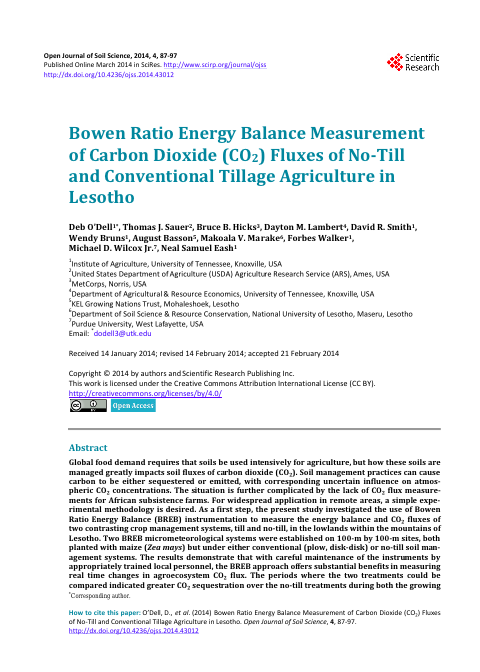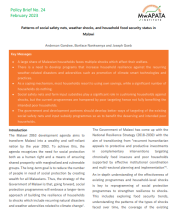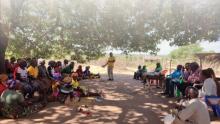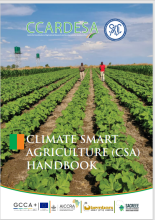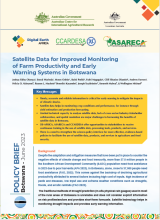Global food demand requires that soils be used intensively for agriculture, but how these soils are managed greatly impacts soil fluxes of carbon dioxide (CO2). Soil management practices can cause carbon to be either sequestered or emitted, with corresponding uncertain influence on atmospheric CO2 concentrations. The situation is further complicated by the lack of CO2 flux measurements for African subsistence farms. For widespread application in remote areas, a simple experimental methodology is desired. As a first step, the present study investigated the use of Bowen Ratio Energy Balance (BREB) instrumentation to measure the energy balance and CO2 fluxes of two contrasting crop management systems, till and no-till, in the lowlands within the mountains of Lesotho. Two BREB micrometeorological systems were established on 100-m by 100-m sites, both planted with maize (Zea mays) but under either conventional (plow, disk-disk) or no-till soil management systems. The results demonstrate that with careful maintenance of the instruments by appropriately trained local personnel, the BREB approach offers substantial benefits in measuring real time changes in agroecosystem CO2 flux. The periods where the two treatments could be compared indicated greater CO2 sequestration over the no-till treatments during both the growing and non-growing seasons.
1. Institute of Agriculture, University of Tennessee, Knoxville, USA
2. United States Department of Agriculture (USDA) Agriculture Research Service (ARS), Ames, USA
3. MetCorps, Norris, USA
4. Department of Agricultural & Resource Economics, University of Tennessee, Knoxville, USA
5. KEL Growing Nations Trust, Mohaleshoek, Lesotho
6. Department of Soil Science & Resource Conservation, National University of Lesotho, Maseru, Lesotho
7. Purdue University, West Lafayette, USA

